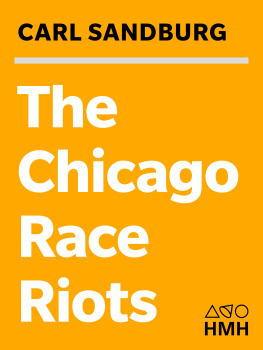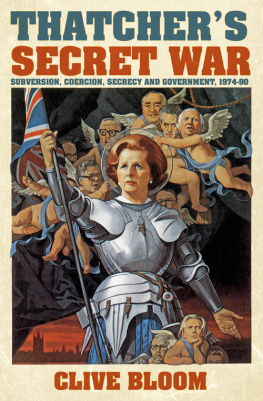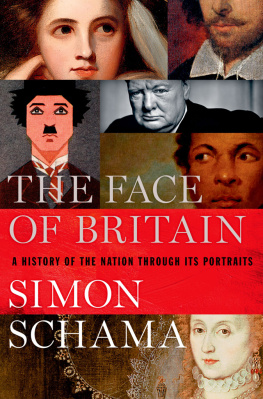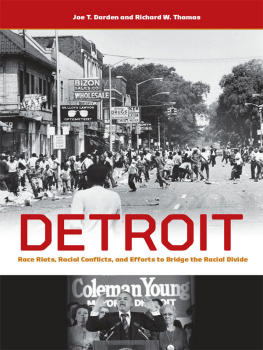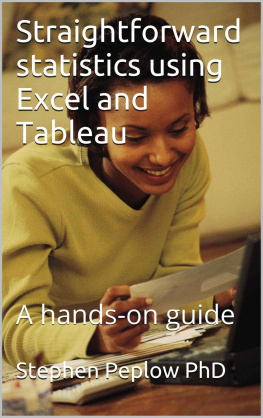RACE AND RIOTS IN THATCHERS BRITAIN
RACISM, RESISTANCE AND SOCIAL CHANGE
FORTHCOMING BOOKS IN THIS SERIES
African and Mexican American men and collective violence, 191565: Margarita Aragon
Transcultural talk in the city: Language, race and struggle in Neapolitan street markets: Antonia Dawes
The Red and the Black: The Russian Revolution and the Black Atlantic: David Featherstone and Christian Hgsbjerg (eds)
Revolutionary lives of the Red and Black Atlantic: David Featherstone, Christian Hgsbjerg and Alan Rice (eds)
East London Jewish radicals: Ben Gidley
The British Black middle classes and cultural consumption: Ali Meghji
PREVIOUSLY PUBLISHED IN THIS SERIES
In the shadow of Enoch Powell: Shirin Hirsch
Race and riots in Thatchers Britain
Simon Peplow
Manchester University Press
Copyright Simon Peplow 2019
The right of Simon Peplow to be identified as the author of this work has been asserted by him in accordance with the Copyright, Designs and Patents Act 1988.
Published by Manchester University Press
Altrincham Street, Manchester M1 7JA
www.manchesteruniversitypress.co.uk
British Library Cataloguing-in-Publication Data
A catalogue record for this book is available from the British Library
ISBN 978 1 5261 2528 6 hardback
First published 2019
The publisher has no responsibility for the persistence or accuracy of URLs for any external or third-party internet websites referred to in this book, and does not guarantee that any content on such websites is, or will remain, accurate or appropriate.
Typeset by Out of House Publishing
Contents
John Solomos, Satnam Virdee, Aaron Winter
The study of race, racism and ethnicity has expanded greatly from the end of the twentieth century onwards. This expansion has coincided with a growing awareness of the continuing role that these issues play in contemporary societies all over the globe. Racism, Resistance and Social Change is a new series of books that seeks to make a substantial contribution to this growing field of scholarship and research. We are committed to providing a forum for the publication of the highest quality scholarship on race, racism, anti-racism and ethnic relations. As Editors of this series we would like to publish both theoretically driven books and texts with an empirical frame that seek to further develop our understanding of the origins, development and contemporary forms of racisms, racial inequalities and racial and ethnic relations. We welcome work from a range of theoretical and political perspectives and as the series develops we would ideally want to encourage a conversation that goes beyond specific national or geopolitical environments. While we are aware that there are important differences between national and regional research traditions we hope that scholars from a variety of disciplines and multidisciplinary frames will take to opportunity to include their research work in the series.
As the title of the series highlights we would also welcome texts that can address issues about resistance and anti-racism as well as the role of political and policy interventions in this rapidly changing field. The changing forms of racist mobilisation and expression that have come to the fore in recent years have highlighted the need for more reflection and research on the role of political and civil society mobilisations in this field.
We are committed to building on theoretical advances by providing a forum for new and challenging theoretical and empirical studies on the changing morphology of race and racism in contemporary societies.
As with any work of this length, it would simply not have been possible to complete such an undertaking without the support of many colleagues, friends and family. Although any remaining faults are mine alone, I would like to thank all those people who have contributed to shaping this project over the last few years.
First, I would like to thank the Arts and Humanities Research Council, the Scouloudi Foundation and the Institute of Historical Research for supporting various stages of this project.
I am indebted to brilliant colleagues at the University of Exeter and elsewhere, particularly Matthias Reiss, Andrew Thorpe, Richard Toye, Gavin Schaffer, David Thackeray and Matthew Rendle, who have constantly provided extremely helpful and constructive feedback and advice, and I am extremely grateful for their support on a wide range of matters over a number of years.
Id like to thank everyone involved at Manchester University Press and the series editors for their interest and enthusiasm for this project. Id also like to thank the anonymous readers for their constructive and helpful comments on drafts. Similarly, my thanks go to all those who have offered feedback on aspects of this research presented at various conferences over many years and to those who have made suggestions or comments in general discussions.
Academics, particularly historians, are nothing without their sources; as such, Id like to thank a range of people for allowing me access to a wealth of material. First, of course, I owe a debt of gratitude to all of those people who were willing to give up some of their time to meet and be interviewed for this book, providing valuable and unique perspectives on the events discussed. John Stevenson generously provided welcome comments and suggestions, further to a great deal of unique materials from his personal collections that formed the basis of discussions of Moss Side in Manchester. Staff and individuals at the Bristol Records Office (particularly archivist Graham Tratt), the National Archives, the British Library, the Black Cultural Archives (Victoria Northridge), the George Padmore Institute (Sarah Garrod) and the Ahmed Iqbal Ullah Race Relations Resource Centre (Ruth Tait) were always helpful and receptive to my questions and requests, and despite budgetary and staffing constraints do terrific work allowing access to otherwise unattainable sources. Similarly, thank you to Information Access Manager Jeff Hines at the Avon and Somerset Constabulary for allowing access to their records, and to the offices of Ben Bradshaw MP who were of great help in my year-long attempts to access government documents.
On a personal note, thanks to my friends for their support over the years. While this includes too many valued and ongoing friendships to name individually here, special thanks must go to Hannah and Will Davies and Luke and Naomi Oates, for providing friendly faces, warm food and a place to sleep after many hours spent in various archives.
Most of all, thank you to my family, to whom I dedicate this book: my parents, Alison and Keith, for their endless support, constantly being my biggest cheerleaders and instilling their children with a love of history; my sister Emma, for her advice, encouragement and insights; and my fiance Lorna, who has filled my life with love and laughter since we met, while being extremely supportive and understanding of the long working hours that this book has demanded. Their collective love, advice, extremely helpful (and foolhardy!) proofreading and unwavering support have been invaluable it is no overstatement to say that this book would not exist without them.







